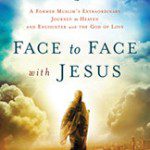Lectionary Reflections for the Second Sunday After Pentecost – June 22, 2014
Genesis 21:8-21
Psalm 81:1-10, 16-17
Romans 6:1b-11
Matthew 10:24-39
God is faithful and invites us to look beyond our own resources and self-interest to a larger vision of life. When trouble surrounds us, we are not alone; God is with us. These affirmations burst forth from today’s lectionary readings.
The Old Testament reading tells of the rescue of Hagar and Ishmael. Banished to the wilderness by Sarah and the reluctant Abraham, Hagar’s life is in jeopardy. Hagar is distraught. She wants to save her son and herself, and cries out in anguish. God responds and provides resources for their survival. Divine providence never leaves us bereft; but comes through when we are most desperate. Great is God’s faithfulness. God doesn’t determine all things, but gently and persistently moves through all things to support us in times of need. The outcome is not guaranteed, but there is grace sufficient for us.
The Genesis passage is a testimony to divine empathy. God hears Hagar’s plea and responds to save her and her child. However, the reality of divine empathy and response to our needs doesn’t privilege those of us who believe we have received divine favor in times of tragedy. We cannot assume God has chosen us and not others. Many cries are not heard. Many mothers helplessly watch their children dying. Many parents fail despite their best efforts to provide for their families. Surely God has not abandoned them, or their children. Rather, life is uncertain, and many factors are at work in every situation. Our cries for help are part of a myriad of other voices and influences within which God is at work, sometimes achieving, other times being countered, in the quest for God’s goals.
If a “supernatural” way is not made, then we must be the hands and hearts of God. We need to be the ones who support rejected women and families. We must be partners in God’s quest for healing and wholeness. Apart from our “naturalistic” interventions, the hungry may not be fed and the thirsty may not receive comfort.
The Psalmist retells the story of Hagar as his own story. The Psalmist cries for deliverance and God responds, making a way where there is no way and providing refreshment in the desert. Anne Lamott notes that prayer involves the interplay of “wow, thanks, help.” All three responses are at work in the Psalmist’s prayer for deliverance. The Psalmist reminds us that none of us can make it on our own; we need to open to our relatedness to the broader universe to fully experience God’s grace in action.
The Apostle Paul recognizes the life-destroying power of sin. He equally recognizes the saving power of Christ. The Christian journey is a constant dying process. We die to the past, to sin, and to old behaviors. We rise to new possibilities and an open future. Dying involves losing the defended individualistic self, and opening to a larger vision reality. No longer imprisoned by the past, we journey forth with new life.
In a time of persecution, the author of Matthew reminds the faithful to embark on the path of Christ, embracing the joys and tragedies of life in their totality. In losing ourselves, we find eternal life. Dying to yourself, and losing your life, takes us beyond the anxieties of the moment to rest safely in God. What dies are the habits of individualism, greed, and self-interest. All these focus on the isolated self and its survival or way of life, and are constantly at risk from external forces. In contrast, Jesus counsels stature, a large and fat soul,to use the language of author Patricia Farmer, to replace the narrowly circumscribed soul, characterized by self-interest and individual success.[1]
What is lost is spiritual narrowness. What dies is the sense of threat from others, who are seen as competitors and enemies. What is born is compassion and freedom. Today’s readings ask us to consider the following questions: What constrains our spirits, that is, what artificial limits do we place on ourselves and our congregations? What needs to be reborn for us to open to eternal life and divine spaciousness? What will be reborn if we and our congregations let go of the safe, self-interested approaches to life and trust God’s open-spirited path to the future?
The process of spiritual growth appears like death to the isolated, defended, and self-made person. But, spiritual dying prior to physical dying enables us to live with success and failure, health and sickness, initiative and dependence, in ways that are life-giving for ourselves and others. Having transcended the small self, we find our peace in the Great Self of God.













